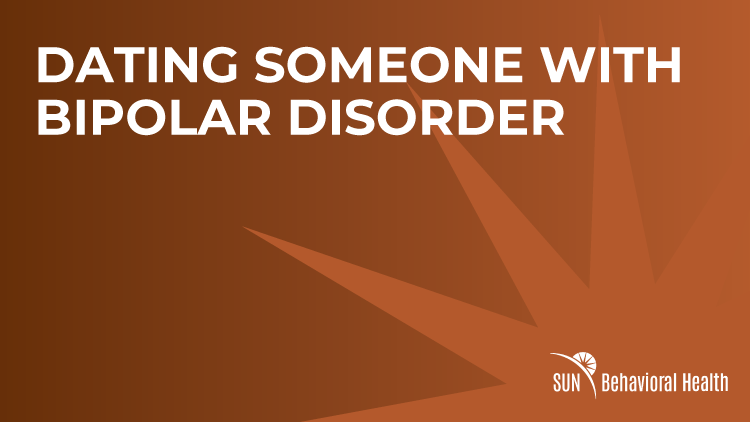Services
- Home
- Mental Health Services
- Who We Treat
- How We Treat
- Patients & Visitors
- About
close

When considering dating someone, the first things you might look at are similar interests, appearance, whether they want kids or not, or some other goals they have in life to make sure they align with your own. Dating comes with its own struggles already, regardless of how compatible you might be. A working partnership requires a lot of communication, compromise, and understanding.
Now, what do you do if you add bipolar disorder on top of this? Approximately 2.8% of people have bipolar disorder, and plenty of these people have happy healthy relationships, but that doesn't mean there might not have been obstacles to getting to that point. So how did they overcome these obstacles, and what obstacles did they have to overcome in the first place?
Bipolar disorder is a mental illness caused by genetics, trauma, stress or over environmental factors. The condition is defined by certain mindstates: manic, hypomanic, or depressive. Manic episodes are more high energy and consist of symptoms such as rapid speech, jumpiness, lack of sleep, and an extreme appetite for food, drinking, or other pleasurable activities.
On the opposite end are depressive episodes, where a person might seem slowed down, have trouble concentrating or remembering things, have lost interest in almost all activities, and feel hopeless or worthless as well.
This still leaves hypomanic episodes, which are defined as a lesser version of manic episodes. They’re not as noticeable by all, as the symptoms are more subtle. The suddenness of them can still be noticed, at times, by the people around those with bipolar disorder.
There are three different types of bipolar disorder:
There are many highs and lows when it comes to having bipolar disorder. It’s important to know, going into it, that the episodes your partner may experience can be extreme. In some cases, there have been incidents of abuse or other forms of violence in bipolar relationships. During bad depressive episodes, your partner may be unable to get out of bed or be convinced their life isn’t worth living anymore. Being aware of the challenges bipolar presents in a relationship, and being acutely aware of your own mental health helps you and your partner. There are support groups that exist for loved ones who have other loved ones with bipolar disorder.
Being in a relationship when you or your partner has bipolar disorder comes with additional obstacles that you have to consider. Some people struggle with treatment because they see the euphoric highs as their “best self” and even chase those highs by trying to trigger episodes. This, of course, doesn’t negate the lows and other obstacles that come with bipolar disorder. A level of understanding and honesty should be had in the relationship. Both partners need to be willing to talk and work on their relationship for the best odds of succeeding, as the person with bipolar disorder will still affect their partner when they do have episodes or symptoms pop up.
Open and honest communication is key to helping your relationship thrive, in addition to a willingness to put in the work to help each other when needed.
Having access to an unbiased counselor that understands bipolar and relationships, is a good way to help the two of you navigate your own relationship better. The counselor will have tips and new methods and behaviors to consider utilizing. These skills help mend or better steer the relationship for the future. A lot of hurt happens during episodes with bipolar disorder, and it is hard to remember what is tied to their illness and how you feel about it. Of course, as with any relationship, it still requires a lot of work, but relationship counselors are helpful in the long run.
If you or your partner has bipolar disorder, having one another involved in the bipolar treatment process, can be beneficial to your relationship. It’s recommended that people with bipolar disorder have a support system to help them out through their journey. Having someone in your corner, whether it's a support group, a close friend, a family member, or your romantic partner, has shown to be very beneficial for people with bipolar disorder. The treatment process for bipolar disorder isn't easy, but having someone who helps you outside of those therapy sessions can make it easier. Whether it's helping you practice the skills you learned, or even just remind you to take your medications, there’s no reason to go it alone if you’re both willing.
One of the most important things to remember is honesty and communication. Understanding that things said or done during a partner’s episodes affect both of you in the long run. Make sure you address problems and are both willing to work towards finding a solution that makes you both happy.
Being supportive goes a long way when it comes to helping someone who is living with a mental illness. If they would like it as well, being a part of their treatment process and learning what things they need, or assisting them in the new skills or methods they’re learning goes a long way.